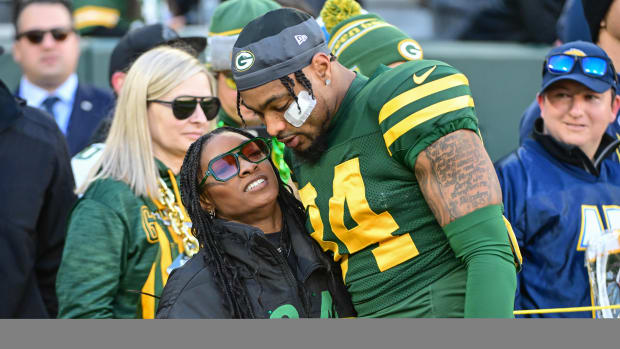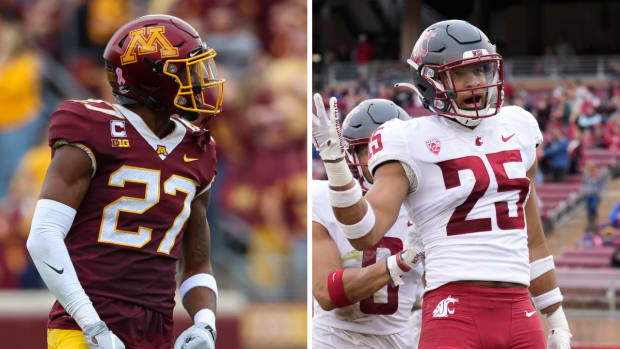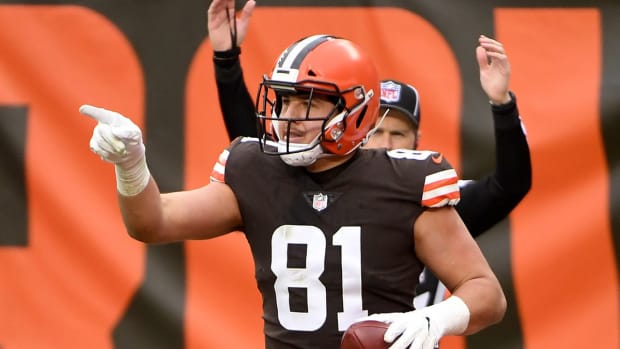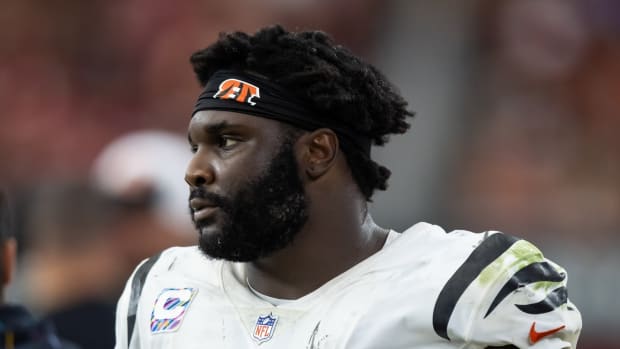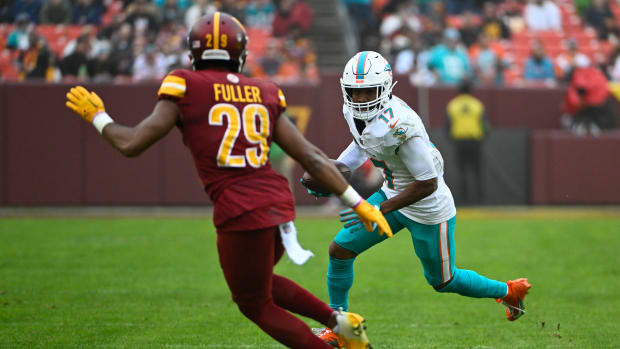Q&A: Kurt Warner Takes His Story to the Big Screen
Beginning his pro career as an undrafted free agent, Kurt Warner underwent a complete transformation in the NFL. He made a rare leap from the Arena Football League to the NFL, going from undesirable to undeniable, winning two regular-season MVPs and leading the St. Louis Rams to the championship in a game where he was named Super Bowl MVP.
Warner’s career is one of the more unique ones in football. In addition to his Super Bowl XXXIV victory against the Titans, which wasn’t decided until the final play of the game, Warner played a critical role in two other unforgettable Super Bowls. He led the heavily favored Rams against the Patriots in Super Bowl XXXVI, where a young Tom Brady engineered the game-winning drive, ending any potential of a Rams dynasty while starting one of his own. Seven years later, Warner brought the Cardinals to Super Bowl XLIII, throwing for 377 yards in a crushing 27–23 defeat to the Steelers.
Warner’s journey is now captured in American Underdog, a biopic on his rise from stocking shelves to Super Bowl MVP. Set for release on Christmas Day, the film stars Zachary Levi as Warner.
Speaking with Sports Illustrated, Warner discussed the film, his Hall of Fame career and who he would like to see in this season’s Super Bowl.
This interview has been edited for clarity and context.
Sports Illustrated: After you went undrafted in 1994, you tried out for the Packers. But there was already so much depth on the roster and you were released, which is when you took work stocking shelves in a Cedar Falls, Iowa, grocery store. At this point, were you still confident you had a future in the NFL?
Kurt Warner: Going from Green Bay’s training camp, right there on the cusp of my dream, to working in a grocery store, there was a point where I doubted it. But I still believed it would happen. I’d ask myself, How do I get out of here?
I needed to find a path to get where I wanted to be. There was definitely self-doubt, but I was only a year out of college, and I was more confident than ever after playing in the Green Bay camp against Brett [Favre], Mark [Brunell] and Ty [Detmer]. So I believed I’d find a way to earn another opportunity. I needed to work through the disappointment of failing and then refocus on getting ready and staying prepared for the next opportunity.
My doubt wasn’t whether I could play. It was whether I would get the opportunity. That wasn’t something that was going to fall into aisle seven. So I kept asking myself, What did I need to do to parlay something into another opportunity? I was looking for that path, that opportunity.
SI: In 1999, St. Louis’s starting QB Trent Green was injured in a preseason game. You received a chance at quarterback and led the Rams all the way to the Super Bowl. Was there a moment that season when you realized that the team was capable of winning the title?
KW: We knew going in that we were pretty good. Trent had been playing so well, we had some good talent and we thought we had a chance. Then Trent suffered the injury, and I got put in there. I felt like I could play well, and it sunk in that we were a really good team by Week 5. We played the 49ers, who’d beaten us something like 17 straight times. They’d owned the division for so long, so we heard that nonstop all week. Then we just destroyed them. That’s when it clicked. That’s the moment where people looked around and thought, O.K., maybe we have something special here.
SI: Titans QB Steve McNair put together an 89-yard drive, falling just one yard short of a touchdown. That Rams team led the NFL that season in total yards, passing yards and scoring but prevailed, 23–16, in a Super Bowl that was won in the closing moments by the defense.
KW: The greatest thing about football is it’s a team sport. Anything you accomplish, you do it as a team. So when you have those great moments, you get to enjoy them with your teammates. It was tough to sit there on the sideline and watch, but even though our offense got a lot of credit that year, our defense stepped up all season. We trusted and believed in them. That was a microcosm of that whole season—we were all needed to win that championship. None of us could have won it alone.
SI: How did American Underdog come together?
KW: It’s been in the works for a long time, almost a decade. It would start and come to a stop—that happened a few times. But with the Erwin brothers as directors and Lionsgate, it took on a different light. This group just seemed to get it from early on, and it felt like it really had a chance where this was going to get made. It got put on hold because of the pandemic, but the right people were fighting for the movie, even during the pandemic. They were passionate about it and found a way to tell the story, and that’s what has me so excited about it.
SI: How far into your journey does the film depict? Do we see the Super Bowl against Tom Brady and the Patriots?
KW: It doesn’t go into the game against the Patriots. It ends after the Super Bowl win. We felt that was the perfect place to end the first part of the story.
SI: Your win against the Titans was incredibly tense, as were your losses, particularly against Brady and the Patriots. What stuck with you longer—the wins or the losses?
KW: I haven’t thought about that Super Bowl loss to New England in a long, long time. For a long time, I thought about it. I focused on those opportunities I missed. That’s the way it was for a big part of my career after that Super Bowl against the Patriots. Then we made that run in Arizona, and there was a crazy play at the end of that game. That changed my perspective. For so long, all it was for me was winning or losing. That Super Bowl taught me that winning and losing is not always on the scoreboard. I had to learn to appreciate and enjoy the moments, rather than solely focus on the results of those moments.
Now, when I look back, I relish that I played in three Super Bowls. Those were three unbelievable Super Bowls. All of those games could have gone either way. I could be 3–0; I could be 0–3. That’s a great way to look at life. Too often, that’s how we define ourselves. How would people view me if I’d won all three games, or if I’d lost all three, even if I’d done nothing differently? We allow different things to define us instead of how we live our lives. So my perspective has changed greatly over the years. For a long time, I did look at who had more points on the scoreboard. I don’t quite look at life the same way now.
SI: Why should people see American Underdog?
KW: People are going to get something out of it. They’re going to get value from it, whether it encourages people or challenges people, whether they are sports fans or not. This movie will get you to look at life differently.
SI: As of now, who is your Super Bowl pick?
KW: It changes on a daily basis. I just love the story lines this game creates. As much as I would love to see Arizona there, and they’ve played so well this year, there is no better story line than Tom Brady against Bill Belichick. Tampa against New England, watching that whole thing play out, it would be so much more high-profile than what we saw when they played in the regular season.
Justin Barrasso can be reached at JBarrasso@gmail.com. Follow him on Twitter @JustinBarrasso.
More NFL Coverage:
• Ravens Deserve Credit for Keeping it Close
• Dolphins Didn't Need Quick Fix to Find Identity
• Ranking All 32 Teams’ Quarterback Situations
• Wild AFC North Race Sums Up the NFL's Unpredictable Season

































